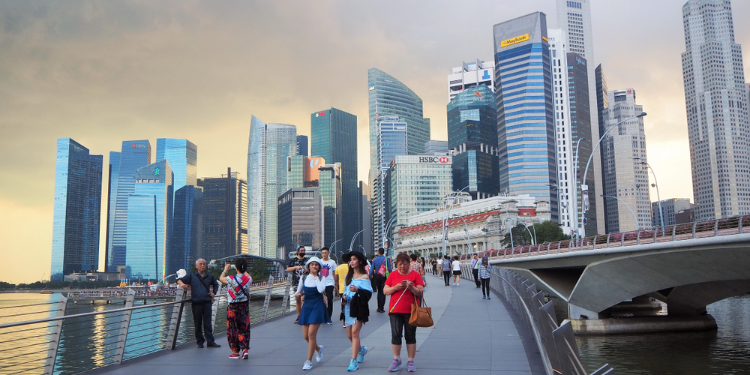
As the expat exodus from Hong Kong gathers pace, Singapore tightens its visa process. The government recently set up difficulties on visa rules for white-collar workers. It raised the minimum salary requirements and introduced a points system similar to what is used in the U.K. and Canada. Expat workers interested in moving to Singapore have to carefully go through its new working visa requirements before considering it as a destination.
Changes
Singapore is more restricted to expatriates. Although the changes came in two weeks, they won't be able to be put into practice before September next year. By then, new applicants will need to accumulate a certain score across a range of criteria that includes educational qualifications and skills, as well as salary relative to comparable locals (the higher, the better). Companies willing to hire expats must have found genuinely exceptional talent and be able to pay more. Another important assessment is whether an applicant's nationality contributes to the company's diversity.
Changes were done during Singapore Budget 2022. It was announced that firms applying for a new Employment Pass (EP) for foreign professionals, managers, and executives will need to pay them a basic salary of at least S$5,000 (*from Sept 2022 onwards), up from the current S$4,500. The minimum wage and qualifications required for S Passes will be increased as well, from S$2,500 to S$3,000. When evaluating applications for EPs and S Passes, the Ministry of Manpower will now also place more emphasis on whether the firm has continued to support its local PMET staff or whether it has discriminated against qualified Singaporeans.
The new visa changes come amidst a shortage of workers across sectors ranging from the labor-intensive construction and services industries to the high-skilled tech and finance sectors, as foreigners left amid tight border controls during the pandemic. Steven, who didn't want to share his last name, is an expat investor based in Singapore. He explained that the process of getting a working visa was already hard; now, it will be worse. “It's by design. It is increasingly hard to get a work permit in Singapore as an expat", he said.
Expat exodus
Singapore might face an expat exodus due to the new visa changes. A French expat in Singapore who didn't want to identify (it)self said: “Singapore is no longer what it was in 2019, mainly due to draconian Covid-19 restrictions, inflation, and nationalism.” Besides, some expats have come out on media to share that their lack of meeting Covid-19 measures has been responded stricter than nationals, as some got in jail for not wearing masks. S Vaitheeswaran, an Indian expat commented: "For a country acknowledged as fair and transparent, and with people-friendly policies like Singapore, a quick question - why differentiate rest of folks from citizens/ PR on Covid-19 travel protocols? Can we expect a rethink in the interest of so many expats?”, he said.
According to the Ministry of Manpower of Singapore, the foreign workforce numbers have been dropping since 2016, which dismantles the idea that the new changes are directly connected to Hong Kong's peak of Covid-19 cases and exodus to Singapore. The number of working expatriates in December 2016 was 1,393,000, while in 2021, it dropped to 1,200,400. Compared to December 2020, there was a drop of less than 1%.
The Manpower Minister Tan See Leng said to Bloomberg that they are trying to differentiate the high talent, “the really super skill sets talent that can come to our country to work and complement our existing workforce”. Although Tan said that resentment against foreigners is not a widespread sentiment in the country, he also mentioned, “rather than open the door and let every single one in, what we are trying to say is that let's have a little bit more differentiation”.
Is Singapore nationalizing jobs?
Although the changes were done in order to attract high skilled expats, the number of expatriate white-collar workers in Singapore fell to the lowest last year in more than a decade, suggesting that the city State hasn't yet benefited from an exodus of professionals from Hong Kong. Ministry of Manpower figures released last week shows that Employment Pass holders — a type of visa issued to foreign professionals, managers, and executives earning at least S$4500 per month — fell by 9% in the year ended December 2021 to 161,700. That's the lowest level since 2010 when there were 143,300 in the country.
The anchor journalist from Malaysia, Ibrahim Sani, commented ironically on the fact Singapore has been “nationalizing jobs”, as he meant it is something normal. “Expats in Singapore suddenly realize they are not special... This is shocking... How will they live now? Poor things... And to think the Singaporean government is prioritizing Singaporean citizens over this very vulnerable group of expats? I just can't imagine.” His comment came over the news last year that expats who lost their jobs were struggling to find another position as well as were waiting in a long queue to get vaccinated, after all nationals.



















